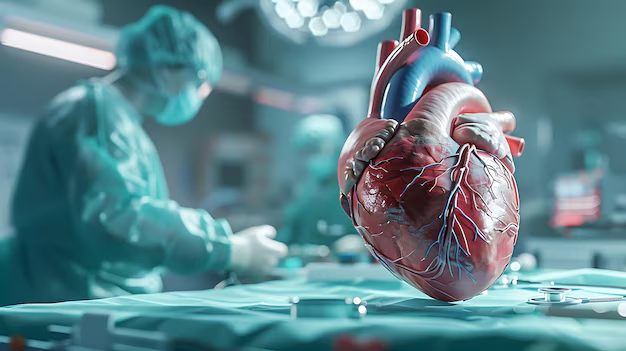Understanding Wolff-Parkinson-White Syndrome (WPW):
Wolff-Parkinson-White (WPW) Syndrome is a rare heart condition caused by an extra electrical pathway between the atria (upper chambers) and ventricles (lower chambers) of the heart. This accessory pathway can lead to episodes of rapid heartbeats (tachycardia), palpitations, dizziness, and, in severe cases, fainting. Left untreated, it may increase the risk of more severe arrhythmias or sudden cardiac events.
Symptoms of WPW Syndrome:
Symptoms of WPW vary in severity but often include:
- Palpitations: A racing or irregular heartbeat sensation.
- Dizziness or Lightheadedness: Often caused by reduced blood flow during rapid heart rates.
- Shortness of Breath: Particularly during physical activity.
- Fainting (Syncope): In some cases, the fast heart rate can cause a sudden drop in blood pressure.
- Chest Pain or Discomfort: A less common symptom but one that warrants immediate medical attention.
Some individuals with WPW may remain asymptomatic but are diagnosed through an electrocardiogram (ECG) during routine health checks or evaluation for another condition.
Ablation as a Treatment for WPW Syndrome:
Ablation for wolff parkinson white in UAE is a highly effective, minimally invasive procedure used to treat WPW syndrome. It targets and eliminates the abnormal electrical pathway, restoring normal heart rhythm and significantly reducing or eliminating symptoms.
The Procedure:
- Preparation: Ablation is typically performed under local anesthesia with sedation. The patient is monitored using ECG and imaging.
- Catheter Insertion: A thin catheter is inserted through a vein, usually in the groin, and guided to the heart.
- Mapping the Pathway: Advanced electrophysiology techniques are used to locate the accessory pathway.
- Ablation: Once identified, the pathway is destroyed using radiofrequency energy or cryoablation.
- Post-Procedure Monitoring: After the procedure, the patient is monitored for several hours to ensure the heart rhythm is stable.
Success and Safety of Ablation:
Ablation boasts a high success rate, with over 95% of patients achieving long-term resolution of symptoms. The procedure is considered safe, with a low risk of complications when performed by experienced specialists.
Why Consider Ablation for WPW in the UAE?
The UAE has emerged as a hub for world-class medical care, offering cutting-edge facilities and highly skilled cardiologists. The availability of advanced electrophysiology labs and minimally invasive techniques ensures that patients receive top-notch care.
TheHeart.ae: A Trusted Name for WPW Ablation
TheHeartae provides comprehensive care for WPW syndrome in the UAE, including advanced ablation procedures performed by experienced cardiac electrophysiologists. Their team ensures personalized care, from diagnosis to post-procedure follow-up, ensuring the best outcomes for patients.
Benefits of Ablation for WPW:
- Immediate Relief: Most patients experience immediate improvement in symptoms after the procedure.
- Non-Pharmacological Solution: Ablation reduces or eliminates the need for long-term medication.
- Quick Recovery: As a minimally invasive procedure, recovery time is short, allowing patients to return to normal activities within days.
- Enhanced Quality of Life: Eliminating arrhythmias significantly improves physical and emotional well-being.
Life After Ablation:
Most individuals treated for WPW syndrome lead normal, active lives. Regular follow-ups and heart monitoring are recommended to ensure long-term success. For many, ablation represents a permanent cure, freeing them from the anxiety and limitations associated with arrhythmias.
Conclusion:
For those diagnosed with WPW syndrome, seeking timely and effective treatment is crucial. Ablation offers a safe, reliable solution to eliminate symptoms and restore normal heart function. In the UAE, patients have access to state-of-the-art facilities and expert care, ensuring a smooth treatment journey.
If you or a loved one is experiencing symptoms of WPW syndrome, consult with TheHeart.ae to explore how ablation can transform your heart health and enhance your quality of life.





Comments